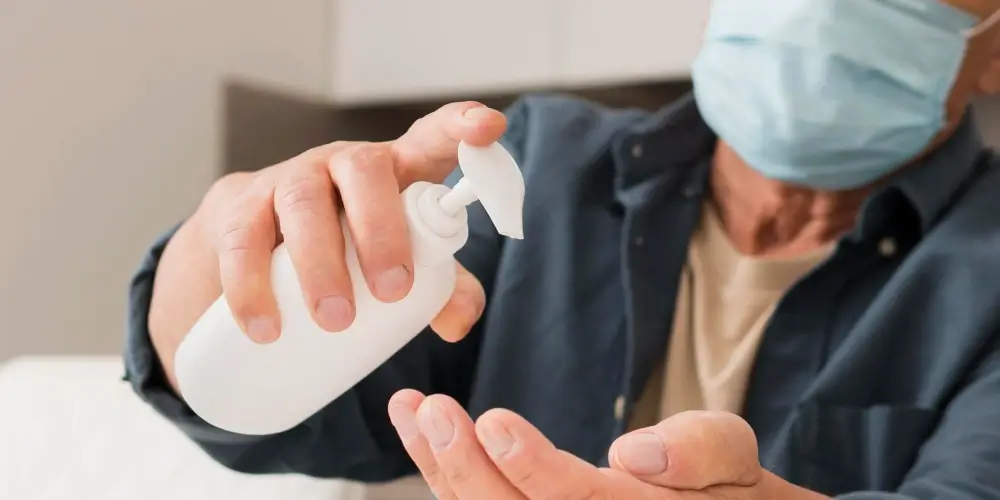

Oral Hygiene: Keeping Your Teeth and Gums Healthy
09/04/2024 Clara Anderson 1562
Maintaining good oral hygiene is not just about having a bright smile; it's essential for overall health and well-being. Proper care of your teeth and gums can prevent dental problems, improve your quality of life, and contribute to your overall health. In this blog, we will delve into the importance of oral hygiene, explore proper brushing and flossing techniques, discuss common oral health problems, and provide tips on prevention.
The Importance of Oral Hygiene for Overall Health
Good oral hygiene is more than just brushing your teeth; it encompasses practices that keep your mouth clean and healthy. Here's why oral hygiene is crucial for your overall health:
1. Prevents Dental Issues:
Regular brushing, flossing, and dental check-ups help prevent dental problems such as cavities, gum disease, and tooth decay. These conditions can lead to pain, discomfort, and even tooth loss if left untreated.
2. Reduces Risk of Systemic Diseases:
Poor oral health has been linked to various systemic diseases, including cardiovascular diseases, diabetes, respiratory infections, and adverse pregnancy outcomes. Maintaining oral hygiene may reduce the risk of these conditions.
3. Enhances Confidence and Well-being:
A healthy smile boosts confidence and self-esteem, enhancing social interactions and overall well-being. Proper oral care also reduces bad breath, improving oral freshness.
4. Saves Money in the Long Run:
Preventive dental care, such as regular cleanings and check-ups, is more cost-effective than treating dental issues that develop due to poor oral hygiene.
Proper Brushing and Flossing Techniques
To maintain optimal oral health, it's important to practice proper brushing and flossing techniques daily:
Proper Brushing Technique:
-
Choose the Right Toothbrush: Use a soft-bristled toothbrush that fits comfortably in your mouth.
-
Brush Twice a Day: Brush your teeth at least twice a day, ideally after meals and before bedtime.
-
Use Fluoride Toothpaste: Apply a pea-sized amount of fluoride toothpaste to your toothbrush.
-
Brush Correctly: Hold your toothbrush at a 45-degree angle to the gums. Use short, gentle strokes to clean the outer surfaces, inner surfaces, and chewing surfaces of your teeth.
-
Brush Your Tongue: Gently brush your tongue to remove bacteria and freshen your breath.
Proper Flossing Technique:
-
Use Enough Floss: Use about 18 inches of dental floss. Wind most of the floss around one finger of each hand, leaving an inch or two of floss to work with.
-
Slide the Floss: Slide the floss between your teeth using a gentle back-and-forth motion. Curve the floss around each tooth in a C shape, carefully sliding it beneath the gumline.
-
Clean Both Sides: Clean the sides of each tooth with the floss. Use a clean section of floss as you move from tooth to tooth.
-
Be Gentle: Avoid snapping the floss into your gums, which can cause injury or bleeding.
Common Oral Health Problems and How to Prevent Them
Understanding common oral health issues and taking preventive measures can help maintain your oral hygiene:
1. Cavities (Tooth Decay):
Prevention: Brush and floss regularly, limit sugary snacks and drinks, and use fluoride toothpaste.
2. Gum Disease (Periodontal Disease):
Prevention: Practice good oral hygiene, including brushing and flossing, and schedule regular dental check-ups for professional cleanings and early detection.
3. Bad Breath (Halitosis):
Prevention: Brush your teeth and tongue regularly, floss daily, stay hydrated, and avoid foods that cause bad breath.
4. Tooth Sensitivity:
Prevention: Use a soft-bristled toothbrush and toothpaste designed for sensitive teeth. Avoid acidic foods and drinks.
5. Oral Cancer:
Prevention: Regular dental visits for oral cancer screenings, avoid tobacco use, limit alcohol consumption, and maintain a healthy diet.
Read More : Oral Hygiene
Tips for Maintaining Excellent Oral Hygiene
1. Schedule Regular Dental Check-ups:
Visit your dentist at least twice a year for professional cleanings and oral examinations.
2. Eat a Balanced Diet:
Limit sugary snacks and beverages. Eat a variety of nutrient-rich foods to support dental and overall health.
3. Avoid Tobacco Products:
Smoking and chewing tobacco can contribute to gum disease, tooth decay, and oral cancer.
4. Stay Hydrated:
Drink plenty of water throughout the day to help rinse away food particles and bacteria that can lead to plaque buildup.
5. Replace Your Toothbrush:
Replace your toothbrush every three to four months, or sooner if the bristles are frayed.
Maintaining good oral hygiene is essential for a healthy mouth and overall well-being. By adopting proper brushing and flossing techniques, understanding common oral health problems, and taking preventive measures, you can significantly reduce the risk of dental issues and systemic diseases. Remember, a healthy smile not only boosts confidence but also contributes to a healthier lifestyle. Start implementing these oral hygiene practices today to enjoy the benefits of a beautiful smile and optimal oral health for years to come. Your teeth and gums will thank you!
Recent Blogs
Building a Diversified Inves ...
26/01/2025 1805
Integrating AI and Machine L ...
24/01/2025 1362
Health Insurance Regulations ...
22/01/2025 2405
Recognizing Signs of Mental ...
20/01/2025 2445
Understanding Employers' Leg ...
18/01/2025 1384
Trending Blogs
Interest Rates: How They Aff ...
20/06/2024 12690
Client Retention: Building S ...
20/06/2024 10743
Introduction to Common Law: ...
21/06/2024 9806
Common Types of Criminal Charges
02/03/2024 8981
Corporate Finance Law: Raisi ...
04/06/2024 8705











